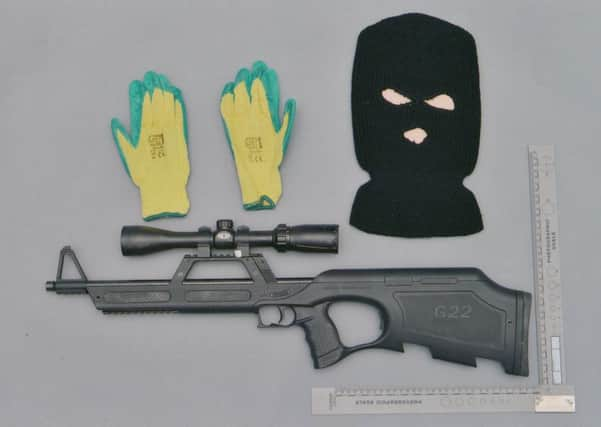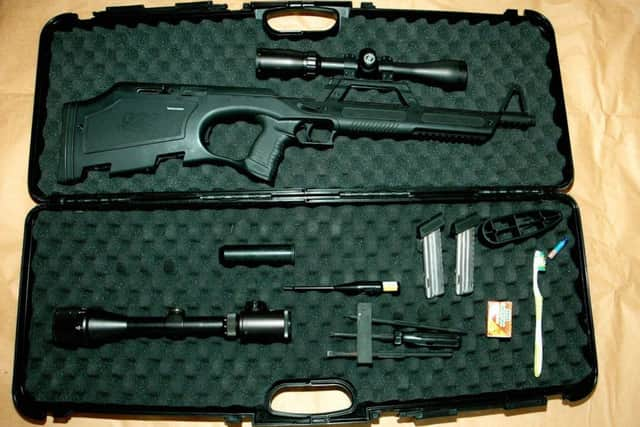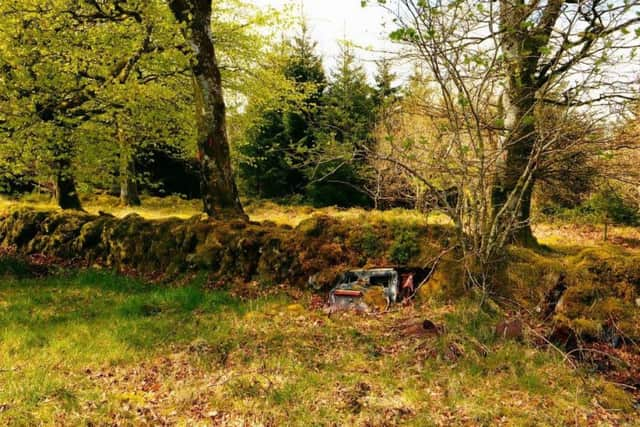Chilling terror figure could be free by spring after 2014 conviction


Sean Kelly was among a gang of four jailed that year after the security services uncovered a paramilitary firing range set up in Formil Wood, mid-Co Tyrone.
The News Letter has looked into the case as part of a wider look at sentencing for people involved in on going paramilitary campaigns.
Advertisement
Hide AdAdvertisement
Hide AdSee here for other sentences which have been looked at in detail, including fugitive Damien McLaughlin, and a trio of men convicted of being part of the ongoing dissident campaign in Belfast.


Kelly (now 51 and of Duneane Crescent, Toomebridge), Terence Aidan Coney (now 38, of Malabhui Road, Carrickmore), his brother Gavin Joseph Coney (now 39, of Gorticashel Road, Omagh) and Sharon Rafferty (now 41, of Cabhan Aluinn, Pomeroy) were convicted of 18 charges amongst them.
All were guilty of attending the firing range for terrorist purposes, the preparation of terrorist acts, and possessing a firearm in suspicious circumstances.
They were convicted in September 2014 after admitting to their offences (though they all initially pleaded not guilty to some).
Advertisement
Hide AdAdvertisement
Hide AdKelly was convicted of the most offences, and ordered to spend at least five years in jail (and five on licence).


The judge also made his sentence “indeterminate”; meaning he could potentially be kept in longer.
Meanwhile Rafferty was ordered to spend four years in jail (and the same on licence) and both Coney brothers got two years, 10 months, and two weeks in jail (and the same on licence).
Kelly appealed against the indeterminate nature of his sentence in 2015 but this was rejected, with a judge affirming that he was “dangerous”.
Advertisement
Hide AdAdvertisement
Hide AdIn dismissing Kelly’s appeal, Lord Justice Gillen noted he displayed a “chilling” commitment to violence.


Conversations between Kelly and Rafferty had been recorded by surveillance.
In these, Kelly was heard to say that he had given the address of the governor of Maghaberry to the leadership of an unnamed group.
He also took them to the house twice, and passed on details of cars which the governor used.
Advertisement
Hide AdAdvertisement
Hide AdKelly had a previous conviction from 1993 for trying to murder a policeman by planting a bomb under his car.


He got a 24-year sentence for that, but was let out early under the Good Friday Agreement.
Other subjects which Kelly and Rafferty discussed included attacking Catholics who had joined the police, the possibility of targeting officers near Toome park-and-ride, and how to handle an AK47 rifle.
Whilst all four were charged with firearms offences relating to a Walther .22 rifle and ammunition, court forfeiture records in the case also saw air guns, a Beretta shotgun, fireworks, unspecified ammunition, and an optical scope confiscated.
Advertisement
Hide AdAdvertisement
Hide AdThe Belfast Telegraph reported last August that Rafferty and the Coney brothers had all already been released, due to time spent in jail on remand before the trial.
Although the Department for Justice said it “cannot comment on either serving prisoners or former prisoners” when it comes to their release dates, if the same process were applied to Kelly, he may be out within months.
He had been arrested in May 2012.
The only record of bail which could be found in relation to him was a single 28-hour period in 2012, so he could attend a funeral.
If he was on remand for the whole rest of the time, and if a judge allowed this to be taken into account when considering the starting point of his sentence, then his minimum term behind bars could expire this May.
Advertisement
Hide AdAdvertisement
Hide AdJim Allister, TUV leader and qualified senior barrister, described the sentences as “generous from the point of view of the accused”.
If the four convicts had been sentenced during the Troubles, their terms could “easily enough get into double figures” he said.
With a police officer having nearly been shot to death last month in what was just the latest attack in the on going dissident campaign, the News Letter put it to the Office of the Lord Chief Justice’s office that sentences of the kind examined here are so weak that they are putting lives at risk.
The paper asked what the justifications for the sentences were. It responded with a statement it had issued earlier in the month in response to questions about other dissident sentences.
Advertisement
Hide AdAdvertisement
Hide AdIt said: “It is not appropriate to compare the sentences imposed in different cases.
“Sentencing is a matter for each individual judge after consideration of the specific circumstances of each case.”
When the Department of Justice was asked if the minister Claire Sugden feels the sentences above were too lenient, the Department of Justice said: “Individual sentences handed down by the courts is a matter for the independent judiciary. It would be inappropriate for the minister to comment.”
See other recent News Letter reports looking into sentencing:
Advertisement
Hide AdAdvertisement
Hide Ad